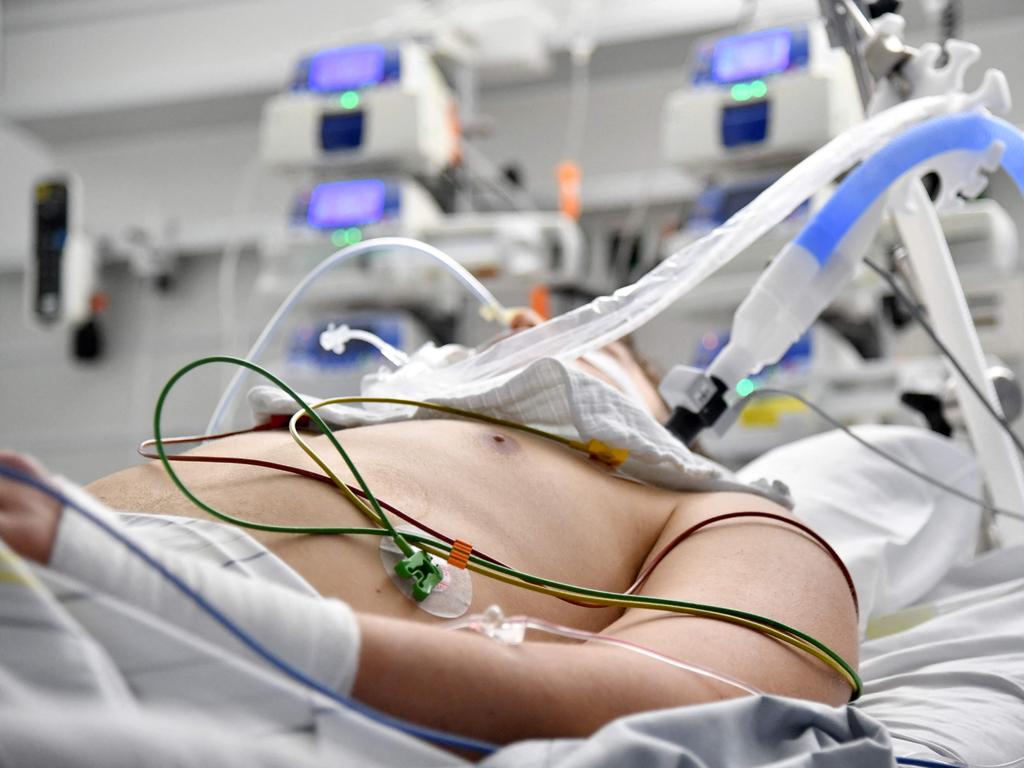Omicron variant: Be alert not alarmed
Australia’s public health specialists are urging authorities not to pull harsh health response triggers too quickly amid a new strain of Covid-19.

Australian epidemiologists are urging authorities to be alert but not alarmed about a new strain of Covid-19 as the country shuts its international border to several African nations amid a new variant of concern.
The first known case of Omicron emerged in South Africa on November 9 and was first reported to the World Health Organisation last Wednesday.
The new variant has several spike protein mutations that can increase transmission rates, but it is unclear whether this will translate into higher hospitalisation rates or deaths.
Health Minister Greg Hunt said on Sunday about 54 people had arrived in Australia from nine countries of concern in southern Africa in the past two weeks, after the government announced non-citizens from nine southern African countries would not be able to travel to Australia.
“The preliminary advice, which is subject to emerging evidence, is we have seen no signs this is a more dangerous disease in terms of its impact on hospitalisations, serious illness or loss of life,” he said. “At this stage we have seen no signs in relation to its resistance to vaccines but constant updating of medical advice has been what we have done throughout the pandemic … and will continue to do.”
Australia chief medical officer Paul Kelly has been tasked with conducting a daily review of international evidence about Omicron and will share information about emerging evidence with state and territory chief health officers.
ANU medical school infectious diseases professor Peter Collignon said there was no evidence yet to indicate existing Covid-19 vaccines would be ineffective against the Omicron strain. “So far, we don’t have any evidence even from South Africa, that the vaccines aren’t working. The majority of people coming into hospitals in South Africa are still the unvaccinated,” Professor Collignon said.
“I might say we have been through this before with Delta and Beta, which was in South Africa, and Gamma from Brazil,” he said.
“So far, all these variants … that are more transmissible don’t appear to have had any more (effect on) mortality or hospitalisations when you … adjust for age, and for vaccinated versus unvaccinated.”
Professor Collignon said action against the Omicron strain should be based on factual data, not fear.
Although more information was needed, he said even if existing vaccines didn’t prevent the spread of Omicron, the key question was whether they would prevent deaths or hospitalisations.
Deakin University epidemiologist Catherine Bennett said authorities made the right call to act quickly with border closures because of the rapid spread of the variant – from 250 to 3000 cases in less than a week in southern African countries – but she was not “panicked”.
“On the good news side, (we are) hearing from the South African Medical Association (it is) a mild illness. Also (it is) presenting differently as muscle aches and fatigue,” Professor Bennett said.
“What we are hearing is it’s … less like a respiratory illness and more like a low-grade infection that seems to clear in a couple of days.”
It is difficult to say how the virus will behave in the Australian community, where 86.7 per cent of the population is fully vaccinated compared with 25 per cent in southern Africa.
Australian citizens are permitted to return from those countries but they must complete two weeks of quarantine.





To join the conversation, please log in. Don't have an account? Register
Join the conversation, you are commenting as Logout